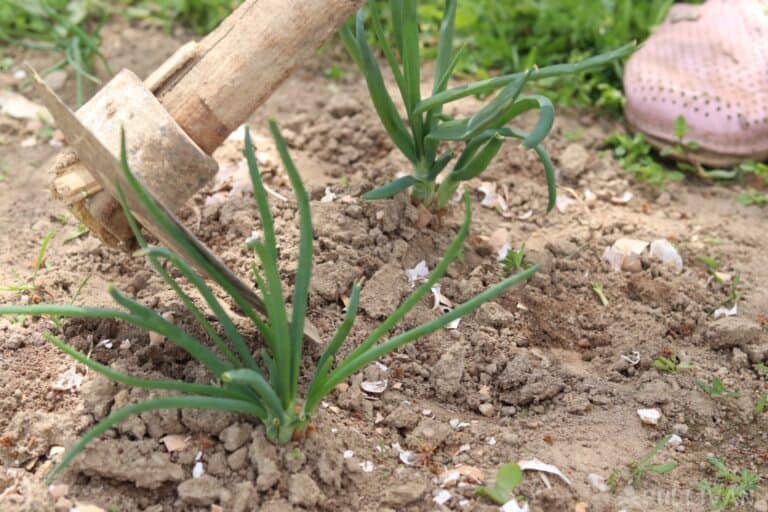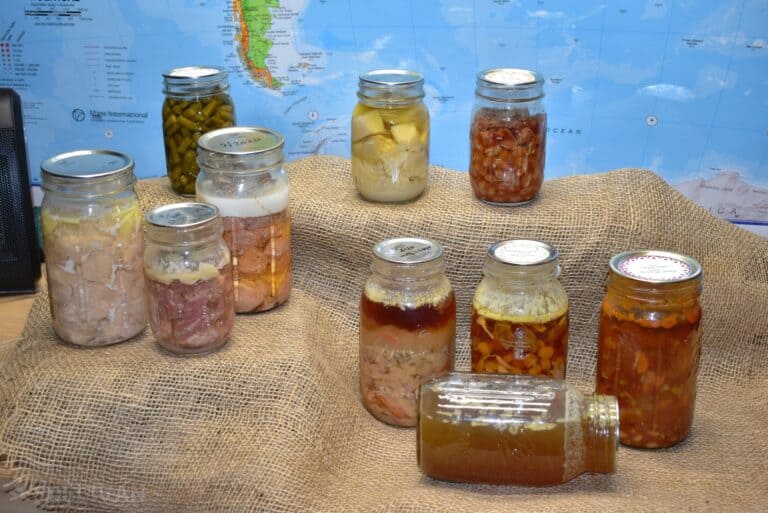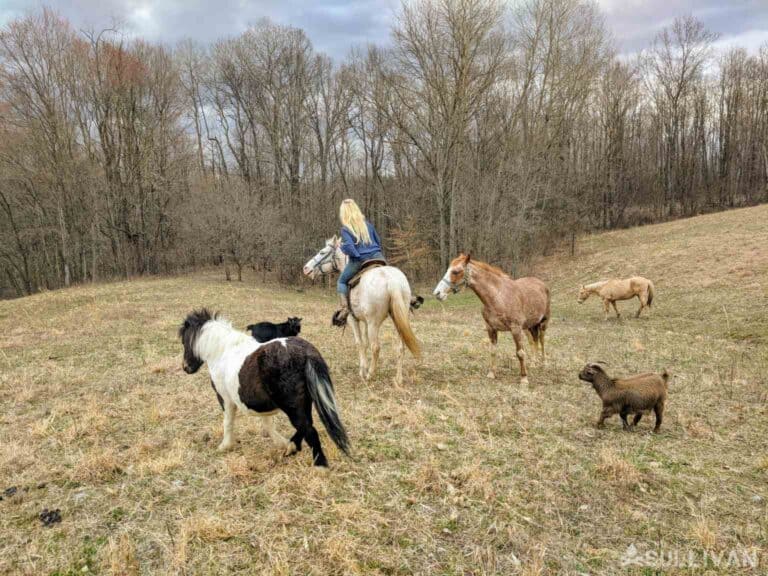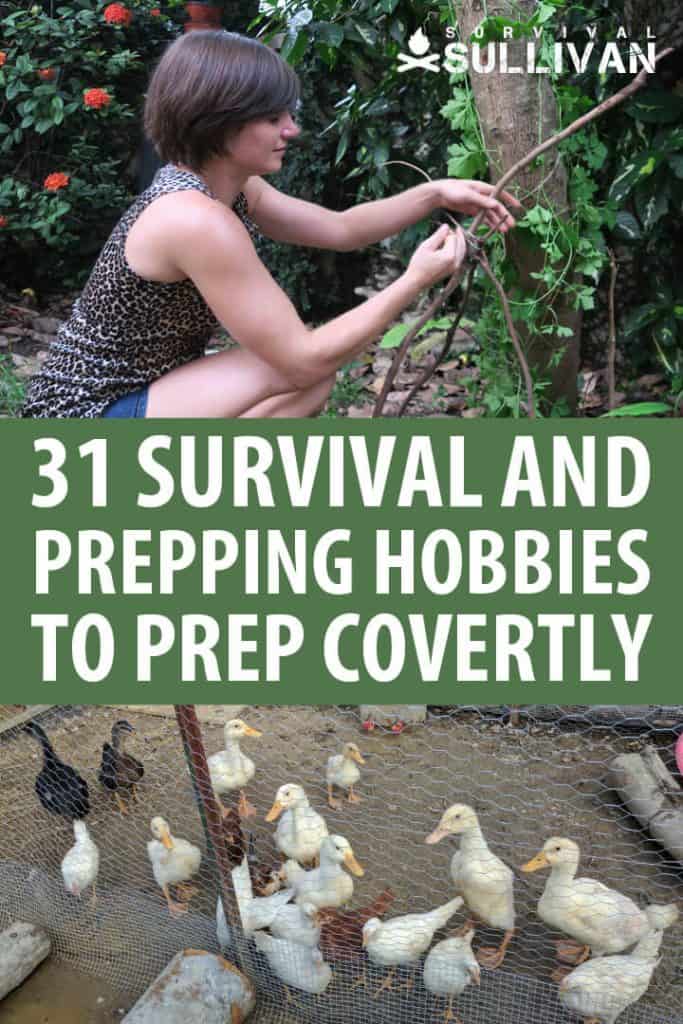So here’s the big question… how do you become a skilled prepper or homesteader without everybody thinking you’re nuts? Preppers and survivalists are widely regarded as extremists, but there are ways to become prepared without ridicule. One has to find a way to incorporate these skills into their daily lives.
When it comes to hobbies, it is important to focus your time on things that can help you survive. There are several activities that can make you a better prepper if you spend the time. Here are no less than 31 survival hobbies that will definitely make you a better prepper.

#1. Gardening
FEMA has predicted a global food shortage from 2020 to 2030. This means that home grown veggies and fruits will be very important. Get your garden going and enjoy a relaxing hobby.
#2. Hunting
Finding meat outside of your farming plot is very important. It allows you to provide protein without cutting into your farm stock.
You have to have the skills and weapons to make it happen, but it can be a great time for father and son or a group of friends.
#3. Water collection
Rainwater collection and well digging are vital to your survival. You have to know where to find the clean water and how to collect it. You are dead in three days without it.
#4. Solar Power
If you can supply your homestead with power by way of solar panels, then installing and managing them is a hobby in and of itself. The government has grants to help with the cost.
Anything you can do to eliminate monthly bills and reliance on the grid is a good idea, and it’s affordable enough that you can keep adding panels until your bill is completely gone.
#5. Wind Power
You can also supply power by harnessing the wind. Set up windmills or turbines and let the rotational power create electricity.
You can keep improving this system to help with other tasks such as pumping water or grinding grain.
#6. Water Power
A third method would be to create electricity by water power. Mills used to use this rotational force to mill their lumber. These days it is more commonly used to create electricity.
The water rotates a water wheel, creating power using the same principle that a windmill does.
#7. Fishing
One of the oldest and most effective ways of securing protein is to fish. There are dozens of ways to accomplish this, but some are more effective than others. Fishing with a rod and reel is very effective and fun, but not as efficient as other methods.
Trot lines put several baited hooks on one line and allow you to catch more than one fish per line. Gill nets let you block off an entire stream an catch everything in the area. Fishing can also make for a relaxing day with your family.
#8. Camping
Getting out into nature is an activity that many people enjoy. It also gives you time to practice some valuable prepper skills.
#9. Water Purification
Don’t bother packing a water bottle when you go hiking, hunting, or fishing. Instead, pack a water filter or purification tablets so you can use whatever water is already present in the area you visit. Learn more about water purification here.
#10. Firewood Collection
If you find yourself outdoors in the rain or right after a storm, test yourself by trying to find dry firewood. Get creative and look at the interior branches of evergreen trees, or split open a log to find the dry interior wood. Treat it like a scavenger hunt.
Here’s our full guide to gathering wood for your stockpile.
#11. Hiking
Long walks in the woods are great exercise, lots of fun, and can keep you better prepared. Try going off trail on rougher terrain.
Here is a good overview of hiking for beginners.
#12. Self-Defense
You can take self-defense classes in your free time. This can be a helpful skill, and everybody wants to be a Kung Fu master.
We have an extensive category of articles on the topic of Self-Defense here on Survival Sullivan.
#13. Making Alternative Weapon
Assign a primitive tool such as a four point spear, atlatl or bow to each family member and ask them to build one themselves.
Kids love this stuff, but so do grown-ups. Lots of articles here on making your own improvised weapons:
- 20 Kick-Ass DIY Weapons for Your Survival
- Primitive Weapons for Survival and Bushcraft
- Alternative Survival Weapons to Have as Back-Ups
- Axes, Hatchets, Spears, Improvised Arms and Ammunition
- DIY Mini Crossbows – Improvised Arms and Ammunition
- DIY Machetes
#14. Signaling
You can play a game with your family or friends where you space each other out and try to get the group together using signal mirrors, whistles, or signal fire. It’s like a non-verbal version of Marco Polo.
Learn the top 5 signaling techniques.
#15. Tracking
Try to determine what kind of animal has been on your property using their tracks and scat. Challenge yourself to see where they entered and where they left. You can roll this activity into hunting or trapping if you like.
Here’s a full guide to animal tracks to quickly see what animal you’re dealing with on the homestead.
#16. Camouflage
Play adult hide and seek. Head out to the woods in camo and try to hide in plain sight with family or friends. Take water balloons and douse anybody that gets close enough without seeing you.
Learn more about camouflage here.
#17. Wilderness Games
You can have lots of fun with family and friends while spending time in the woods. I remember playing games like capture the flag, and scavenger hunts. You can implement the use of a map and compass to step it up a notch.

#18. Food Preservation
Smoke meat and fish or can veggies and meats. Make pickles or sauerkraut. These products taste great and help you maximize your stockpile.
There are a TON of ways to preserve food you can learn.
#19. Herb Garden
Try growing herbs inside in a kitchen window. Herbs can help with food preservation and make your food taste better. In addition, many of these herbs have medicinal qualities that can be helpful while prepping.
Here are the top 16 herbs you should start growing.
#20. Cooking over a Fire
Build a wood fire in a pit for breakfast and practice cooking eggs, bacon, doughnuts, and blueberry muffins over the fire when you go camping. It takes some practice to get it right. The smoke adds to the flavor of the food, and it can be a lot of fun. Build a rocket stove for a more efficient fire.
Learn more about outdoor cooking here.
#21. Knot Tying
Assign a different knot to each family member and have them show everybody else how to tie it. Have the kids practice tying you up and see if you can get loose. There are also games you can build by tying rope into complicated knots and then challenging yourself to untie them.
Learn how to make the most useful survival knots here.
#22. Woodworking
Teach your family to whittle and give them different objects to create. They make great Christmas presents.
#23. Flint Knapping
Start a rock collection, but identify rocks that are ideal for flint knapping. Try creating arrowheads or spearheads with your rocks.
#24. Build a Greenhouse
Try stepping up your gardening game by using clear plastic and PVC pipe to build a green house. This will allow you to keep growing certain veggies in the winter as well.
Check out these indoor greenhouse plans – they are awesome.
#25. Beekeeping
Buy or build a couple hives and practice working with bees. Many people find it very relaxing, and free honey is a nice perk. Honey is a great survival food and can be stored for years.
#26. Butchering
When you go deer hunting, stop using the local butcher shop. Teach yourself to process the animal into cuts and sausages. It will save you a bunch of cash and teach you a valuable skill.
#27. Animal Farming
Get some chickens or a goat and have your family help you raise them. It will save money in the long run and help develop a higher sense of responsibility for your family. You also get meat this is hormone free.

#28. Horseback Riding
If you don’t have horses, try to go riding anytime you are on vacation.
#29. Sewing
Have your family sew their own Halloween costumes. They will appreciate them more and learn an important skill. Quilting is also a fun hobby that can become very important when SHTF.
Learn more about sewing for survival purposes here.
#30. Landscaping
Fruit trees are a great food source, and are inexpensive to maintain. Do your own landscaping and be sure to include fruit trees that are not ornamental.
#31. Radio Communication
When driving on vacation, take a CB radio with you and practice talking to truckers. They are typically happy to have somebody to talk to. You can also get a scanner and listen to the police channel.
There are dozens of ways to learn and practice survival skills by incorporating them into your daily activities. You can make this progress lots of fun for you and your family, and it can be a great stress reliever.
By the way, by handling these activities yourself, you get to save the money that you would normally spend paying somebody else to do your dirty work.
For most people, the biggest aspect that is missing from prepping is practical application. Knowledge is great, but if you have not spent time applying that knowledge then you are in for some trouble.
There are always variables that you cannot predict, and learning to deal with those variables is crucial. Spend your time perfecting these crafts, and you will be ready when SHTF. What can you do in your free time to help you be more prepared?


My name is Ryan Dotson and I am a survivalist, prepper, writer, and photographer. I grew up in the Ozark Mountains and in the foothills of the Pocono Mountains. My interest in survival started when I was in Boy Scouts and continued as my father, uncle, and grandfather taught me to hunt and fish. In the last few years I have started taking on survival challenges and have started writing about my experiences. I currently live in Mid-Missouri with my wife Lauren and three year old son Andrew.
